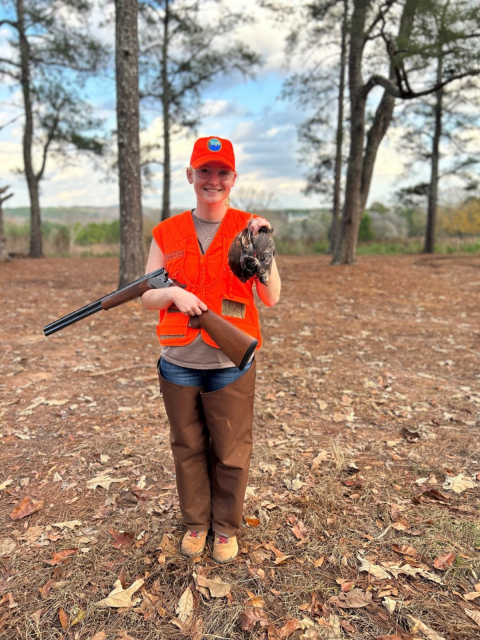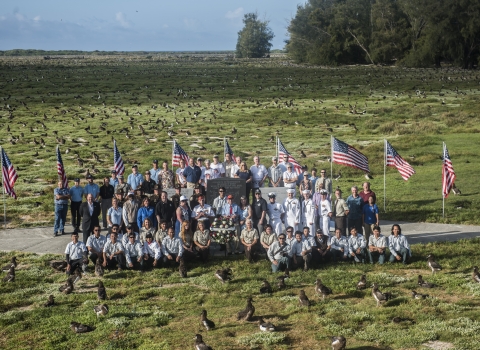ACE Fellow Elena Campbell shares her reflections after attending a Conservation Leaders for Tomorrow (CLfT) workshop at the Charlie Elliot Wildlife Center in Mansfield, Georgia
I did not grow up hunting. My first real exposure to the outdoor activity was when I began working as an American Conservation Experience (ACE) Fellow for the Wildlife and Sport Fish Restoration (WSFR) Program. As someone who comes from a family of self-proclaimed tree-huggers, it was hard to articulate exactly how hunters supported conservation when I began this position. In early December 2022, I was fortunate to attend a Conservation Leaders for Tomorrow (CLfT) workshop at the Charlie Elliot Wildlife Center in Mansfield, Georgia. The purpose of the workshop, hosted through the Max McGraw Wildlife Foundation, was not to turn participants into hunters. Rather the workshop provides natural resource professionals with an understanding of hunting and its role in conservation to ensure that hunting’s stewardship benefits remain a relevant and important element of wildlife conservation.
In the span of five days, the workshop covered a multitude of topics such as the motivations and demographics of American hunters, contemporary wildlife management issues, and additional outdoor activities that help support conservation like trapping and fishing. A total of fifteen participants attended my workshop—a combination of both state and federal employees with varying degrees of experience working with hunters. We were joined by ten knowledgeable instructors with unique backgrounds related to hunting that volunteered a week of their time to be at the workshop. This allowed several opportunities for participants to have individualized instruction throughout the week.
We got to participate in an optional hunt on the fourth day of the workshop at Buckeyes Plantation. Everyone was assigned a designated mentor for the duration of the hunt which lasted about two hours. My “hunting party” consisted of myself, my mentor, another participant, her mentor, and a guide with a hunting dog. It was exciting to put my new knowledge and skills into practice during the hunt. Earlier in the week we learned how to track a moving target with a firearm using a flashlight taped to an unloaded shotgun and a laser pointer that the instructor had us follow. We also had practice time at a target and clay ranger prior to the hunt. During the hunt, our hunting dog would point to a quail, ready to flush it out for us novice hunters. My mentor would tell me if I had a good shot, but he never told me to take a shot—that decision was entirely my own.
Finally, a quail flew up to a point where I felt comfortable taking a shot. Bang! My first shot of the day and I got a quail. Behind me, my mentor threw his arms up like his favorite football team had just made a touchdown and an overwhelming feeling of accomplishment washed over me. I was now part of the hunting community that focuses on the ethics and stewardship for wildlife take and conservation.
Once the dog retrieved the bird for me, we discovered that the bird was shot, but still alive. As an ethical hunter, I had to take the responsibility of dispatching the bird as quickly as possible. I almost felt the need to apologize to the bird, but instead, I choose to thank it for the food it would provide me later on. For me, the act of dispatching and then processing the bird made me more appreciative of the animal I had harvested because it required more effort on my part. Through this bird I was connected to wild animals and wild places. For many others, hunting is a gateway to the outdoors and connection to nature. Additionally, most people utilize the species they hunt for food for their families and communities.
Until I shot that first quail, I had not fully understood the positive emotional and connection effect hunting would have on me. I believe understanding that emotional component is imperative to communicating effectively with hunters and non-hunters alike. While I may not become an expert hunter or hunt every year, I now have the tools to understand the role hunters play in conservation. My participation in this workshop has increased my appreciation of the positive aspects of ethical hunting. It will also inform my work moving forward with manufacturers of hunting equipment, as well as hunters.




